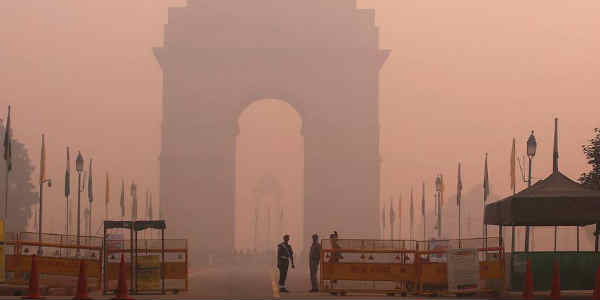
Air pollution levels jagged across the nation as the celebration of lights bowled around. Plus, the signs were present, as the Delhi government had already issued notices as right on time as October 12 when it said that the unabated burning of the crop residue in the neighboring states and firecrackers amid Diwali may seriously affect Delhi's air quality, which had already entered the 'poor’ zone.
Delhi’s air quality level of ‘very poor’ on the day of Diwali was best in past three years but the air quality was far from satisfactory as it climbed to ‘severe’ level on Friday evening — a day after the Diwali celebrations.
[yuzo_related]
Upsettingly, PM10 and PM2.5 levels—amid and after Diwali festivities in a few areas of the national capital—went as high as more than 24 times and about 15 times, respectively, as far as possible even this year.
According to SAFAR, Delhi's neighboring towns like Noida and Gurugram too observed 'severe' air quality level. While overall air pollution level on Diwali was 'very poor ' on the day of Diwali, the information recorded by air quality stations of the Delhi Contamination Control Committee (DPCC) demonstrated that levels of PM10 and PM2.5 touched alarming levels amid and after Diwali festivities.
In the meantime, the air quality in the national capital was better than 2016, as per an information from the Focal Contamination Control Board (CPCB). The Air Quality List (AQI) value on Thursday was 319, placing it in "very poor" class, while the AQI last Diwali (30 October) had touched "severe" level subsequent to recording an index value of 431.
According to the AQI discharged by the CPCB at 4 pm, particulate matters were the real contributors of "very poor" air quality on Thursday.
The year 2017 has seen positive changes as for air pollution in Delhi because of various steps and measures were taken by Union Government, State Governments, and by Government of Delhi.
The air quality index (AQI) of Delhi on Diwali this year was recorded at 326 (very poor) compared to 426 (severe) in 2016 and 327 (very poor) in 2015 as per CPCB.
However, what is certainly a reason to cheer is that the noise pollution on Diwali this year showed a declining trend compared to 2016.
In addition, “The sound level data on Deepawali day monitored during last four years reveals that in 2017 the sound level recorded is the lowest at all stations, even in humid atmospheric conditions,” said an analysis revealed by the Central Pollution Control Board (CPCB), which is India’s nodal pollution watchdog.
Image Credit: NDTV
Any information taken from here should be credited to skymetweather.com


